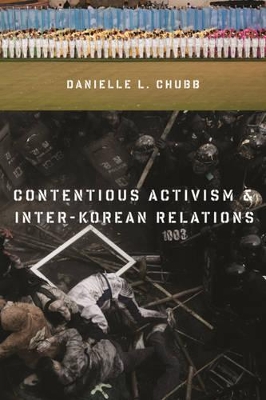Contemporary Asia in the World
1 total work
In South Korea, debate over relations with the North is a contentious subject that transcends traditional considerations of physical and economic security. Political activists play a critical role in shaping the discourse as they pursue the separate yet connected agendas of democracy, human rights, and unification. Providing international observers with a better understanding of how South Korean policy makers manage inter-Korean relations, this volume traces the debate from the 1970s through South Korea's democratic transition. Focusing on four case studies -- the 1980 Kwangju uprising, the June 1987 uprising, the move toward democracy in the 1990s, and the decade of "progressive" government that began with the election of Kim Dae Jung in 1997 -- Danielle Chubb unravels South Korean activists' complex views on reunification, with the more radical voices promoting a North Korean-style form of socialism. While these arguments have dissipated over the years, traces remain in discussions over engaging with North Korea to bring security and peace to the peninsula.
